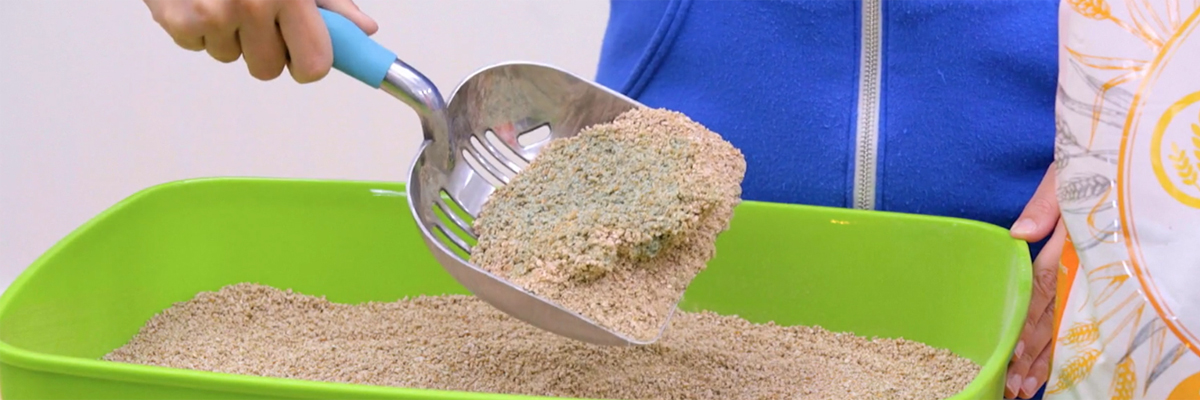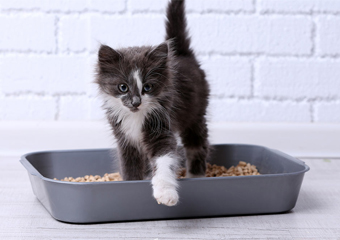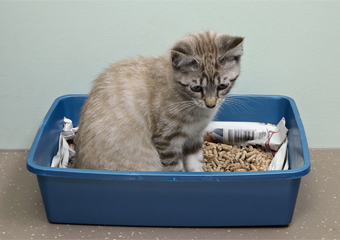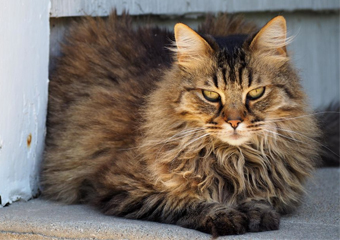Updated: 27/12/2020
How To Stop Cat Litter From Smelling
Your cats are the most adorable, cutest, and sweetest loves of your life. They purr and make you feel like the ruler of the world. However, they can also smell up the house with their super stinky poop odour. The litter box starts stinking till the smell permeates throughout your home and possibly to your neighbours too. Cats are extremely particular about personal health and hygiene. If the litterbox starts smelling, there is a high possibility the feline will stop using it, and go someplace else to do their business.
Most pet parents fail to understand that the pungent odours of cat refuse are one of the main reasons why most kitties get litterbox aversion. Cleaning the box and regularly clearing out the litter helps keep the house odour free and allows your cat to defecate in peace. Some felines also develop rashes and skin allergies when they are forced to use the same kitty litter repeatedly. The bacteria and smells from the waste can also cause respiratory issues in pets and humans.
Before we look at all the different ways that you can stop the box from smelling, always remember to invest in the best cat litter. Ensuring that your cat has the best litter will keep your kitty healthy in the long term.
Let us look at how to stop cat litter from smelling.
Ventilation: Kitty litterboxes should always be kept in a well-ventilated area. Most smells linger in the air and cause respiratory issues. Besides the health risk, most cats hate eliminating in dark and dingy places. Damp cellars and dark rooms with less ventilation could also be causes of litterbox aversion. If you keep the box out of sight, there is a high possibility you may forget to clean it out.
Cat behaviourists and pet psychologists say that most felines like going to places that are regularly visited by everyone in the house. For instance, placing the litterbox under the living room window, or in a well-lit and ventilated hallway would be ideal. If you must keep the litterbox in a slightly damp area, ensure you place the best dehumidifiers around the room to keep the air dry. Cats like to stay amongst people and also have their privacy while eliminating. Placing the box in a well-ventilated area helps eliminate smells while ensuring your kitty uses it regularly.

Don’t Mask Odours: It is effortless to keep a scented candle, some potpourri, or air freshener around the litterbox. While these smells are fantastic for us, they may cause unnecessary gag reflexes in your cat. With the heightened feline sense of smell, there is a high possibility that your cat will avoid using the litterbox entirely. Oils from potpourri may also burn the skin on your kitty, and cause further complications.
Instead, allow fresh air to remove all the smells from the litterbox. You could also invest in one of the best air purifiers to help keep the air clean and ensure that your cat breathes in proper air. Masking odours with chemicals and unnecessary scents will make your cat start defecating in other areas of the house.
Clean the Litterbox Regularly: Cleaning out the litterbox is the most crucial part of keeping it from smelling bad. As soon as your cat urinates or defecates, it is good practice to scoop the waste and throw it in the bin. If you plan on using it for compost, then you should place the scooped out litter in the compost bin (only if the litter is organic and compostable). Clumpy waste should be removed as soon as possible.
The entire litter in the box should be replaced every three to four days to keep the box clean and your cat healthy. When the litterbox is empty, you could also wash it out with warm water and a mild unscented detergent to remove any refuse. Spraying nontoxic, non-smelly sanitizer will also help keep the box tidy and odour-free. Once you fill in the fresh litter, pick up any stray litter pieces from the floor, and allow your cat to move around the box to get acclimated again.
Healthy Diet: Most people forget that cat faeces smell the worst only if they have a stinky diet. If the stink from the refuse is unbearable, you could consult a pet nutritionist and make some changes to the food. A healthy dietary change will result in a beautiful coat, less smelly faeces, and an odour controlled home environment.
Small changes in food and water would probably be one of the solutions to the litter box smells. Felines with stomach issues or digestion concerns will also benefit with proper medication, diet, and healthy stools.
Related Reads
How to Dispose of Cat Litter
Updated: 27/12/2020How to Dispose of Cat LitterWhen it comes to care and affection, all pet parents want to shower their felines with love. While all cat and dog parents know that loving and disciplining their pets is a lot like raising children, cleaning up the waste...
What Is The Best Cat Litter
Updated: 26/12/2020What Is The Best Cat LitterIn earlier times, people would fill litter boxes with ash, sand, or sawdust. Thankfully, cat parents do not have to resort to these methods any longer. Now, there are unlimited litter options readily available in the...
How Often To Change Cat Litter
Updated: 26/12/2020How Often To Change Cat LitterCat parents often face litter cleaning issues. Most cat and kitten parents wonder how often they should change the litter in the litterbox, and how much should be replaced. Since a litterbox is essential for felines to...
How To Litter Train A Cat
Updated: 10/12/2020How To Litter Train A CatLitter training for cats is crucial, especially for new cat parents. Making sure your feline is safe, secure, and comfortable in her new environment is essential for proper litter training. You could get the best cat litter...
What Do Cats Eat
Updated: 13/11/2020What Do Cats EatCats, like most dogs, enjoy a variety of different foods. Ideally, cats should be given a balanced nutritious diet containing fats, proteins, carbohydrates, vitamins, fibres, and minerals in the correct amounts. It is up to us to...
When can Kittens go Outside
Updated: 09/17/2020When can Kittens go OutsideKittens are naturally curious and will want to explore and go outside. The natural tendencies of cats and kittens urge them to wander around greenery and navigate through uncharted spaces. Kittens need to be cared for, and...






